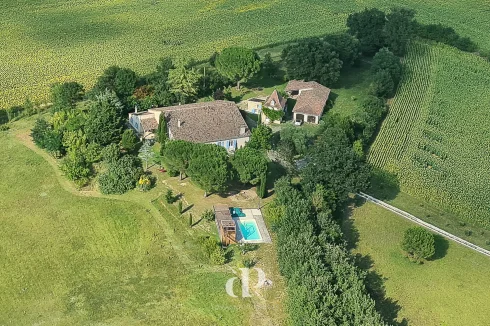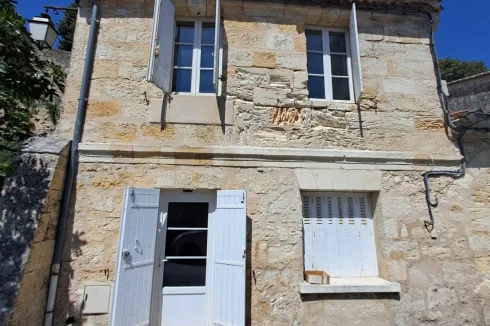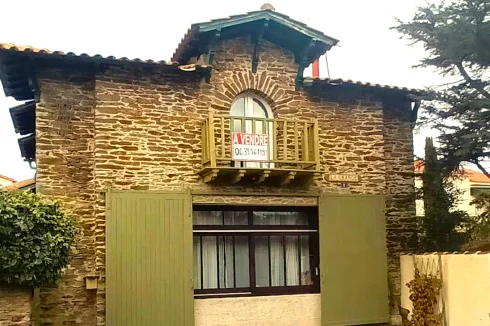Holiday Accommodation Tourist Tax
Tuesday 05 July 2016
The government have tightened the procedures on chambre d'hôte owners and landlords of gite accommodation for recovery of the tourist tax, the taxe de séjour.
Somewhat curiously, the legislators have also granted the right of imposition to those councils that merely promote tourism, as well as to those who take action to protect the natural environment.
The type of accommodation of on which the tax can be applied has also been gradually widened, to include all forms of tourist or transit accommodation - hotels, camping and caravan sites, chambres d'hôtes and meubles de tourisme (gîtes).
However, it is not a mandatory tax, as local councils have the discretion as whether or not they wish to introduce it.
Out of an estimated 6,000 councils who are entitled to do so, only around half have chosen to impose the tax.
Many step back from introducing it because of what they consider to be the potentially adverse impact on tourism; others simply because the income they would receive from it outstrips the administrative cost and difficulties of imposition and recovery.
Although total receipts nationally from the tax amount to around €250 million pa, many small councils receive less than €100,000 a year.
The main problem has been that the rate of the tax has barely been increased since it was introduced, with a minimum and maximum range set between from €0.20 to €1.50 person/night.
That has all changed with the Loi n°2014-1654 29th December 2014 and implementing Décret n°2015-970 31st July 2015, which have modified the legal framework for the imposition of the tax and raised the minimum and maximum tax rates that apply.
The new rates differ by type of accommodation, but they are within a range from €0.20 to €4.00 person/night, and in future will be increased in line with inflation.
The position of chambres d'hôtes and meubles de tourisme has also been more clearly defined on the schedule of tariffs.
The tariffs that apply in 2016 for all types holiday accommodation (excluding camping and caravan sites) are shown below. The tariffs are per person/per night by star rating.
| Taxe de Séjour | |
| Class | Rate |
| 5 Star | €0.70 to €4.00 |
| 4 Star | €0.70 to €3.00 |
| 3 Star | €0.70 to €2.30 |
| 2 Star | €0.50 to €1.50 |
| 1 Star | €0.20 to €0.80 |
| Chambres d'Hotes | €0.20 to €0.80 |
| Unclassified | €0.20 to €0.80 |
The departmental councils are entitled to impose a 10% levy on these rates in support of their own tourism activities, and many do so.
A great deal of discretion is left to the councils as to the terms under which the tax is applied, and they can choose to adopt one of two forms of taxation:
- Taxe de séjour au réel - The actual amount of tax due for each visitor who stays at the establishment.
- Taxe de séjour forfaitaire - A fixed charge imposed upon the establishment based on the capacity of the establishement and the period it is open.
These different methods of taxation are not without significance, for in the first case it is the guest who pays the tax shown on their bill, whilst under the forfaitaire method no tax is shown on the bill, and the amount of tax paid by the landlord is independent of the actual number of visitors they receive.
In addition, local councils determine the period(s) in the year when the tax should be applied (full or part year) and a discount that is applied for the period the establishment is open during this period. The level of the discount may be up to 50%
The rate is also determined by the council, within the permitted range, and can sometimes vary over the year, between low and high season.
In relation to hotels and camping sites, all of this seems to operate satisfactorily, but it is less successful in relation to chambres d'hôtes and meubles de tourisme.
This is due to the number of such businesses that do not register with the local council, and the under-reporting of occupancy rates even when they are registered.
The level of non-declaration has been greatest in the largest urban centres, particularly with the development of internet hubs such as Airhub, where authorities have simply lacked the resources and the powers to supervise the letting activities.
A submission to a committee of the French parliament in 2014 estimated at around 80% of chambres d'hôtes and meubles de tourisme escaped proper control by the local councils.
The hoteliers in France have protested loudly at the unfair competition they face.
It has been in response to those complaints that the government has granted local councils the power to inspect the books of holiday let landlords and to impose fixed tax demands if they consider there has been falsification of income.
The problem for the councils is to be able to prove that there has been an under-declaration, for such a demand must be justified, and it can be challenged by the landlord if they do not consider it to be reasonable.
As a result, it may well turn out to be a new power that is more often going to be used against those landlords that simply fail to make a declaration, with only flagrant under-reporting of registered landlords subject to such penalities.
Of greater impact has been the new framework in place for holiday rental websites, such as Airbnb and Abritel, who have been given the power to collect the tax on behalf of their clients.
Last year, Airbnb reached an agreement with the Paris council on collection of the tax, to whom they are now handing over millions of euros in tax receipts. The same collection process will be operational in 18 other towns and cities in France next month.
Landlords marketing their properties through such sites are required to either authorise the site to collect the tax on their behalf, or to pay the tax themselves. Airbnb now make the charge compulsory as part of their booking procedures.
Next Article: Pre-Contract Enquiries
Thank you for showing an interest in our News section.
Our News section is no longer being published although our catalogue of articles remains in place.
If you found our News useful, please have a look at France Insider, our subscription based News service with in-depth analysis, or our authoritative Guides to France.
If you require advice and assistance with the purchase of French property and moving to France, then take a look at the France Insider Property Clinic.





